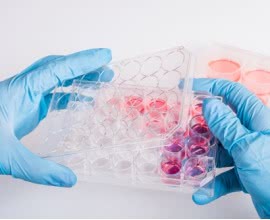Male Infertility, 3 Common Causes. Make sure you aren't at risk
Infertility has become a talking point in today's society – why? For two main reasons. Firstly because there are more and more solutions out there that can resolve the issues of infertility, many of which are hosted by European asssisted reproduction and cosmetic surgery clinics. The rise of international medical tourism in areas like the Czech Republic have ensured that forward-thinking facilities are on the rise. Secondly, and perhaps less reassuringly, because we are realising the high number of causes behind infertility. In this article we discuss three key causes of male infertility, and discuss options for their treatment.

1. Genetic disposition
Let's start with the most common and hardest to prevent; a genetic disposition to infertility. This simply means causes that you may have inherited through family lines or taken on through another disease or condition you previously had. In other words, causes in your body that are not specifically due to your own actions. So what can this entail? Here are some examples. A history of prostatitis (inflamed prostate gland)[1] or other conditions related to the prostate or genital area are commonly found in men with a genetic disposition to infertility. Another way to describe hereditary conditions present after birth is congenital. Consulting your doctor for a full medical record should help you to determine whether a genetic disposition to infertility.
2. Environmental factors
A 2001 study revealed that exposure to solvents and pesticides can effect the potency of sperm in men[2]. Those who are most at risk from this are those working in industrial or chemical situations, and specifically farmers who are working with pesticides (this study was conducted in Argentina, on a rural farming population). Chemical engineers working with radioactive material or lead are also listed as being at risk. If you live in a city, this is perhaps not your first concern, although pollution in urban areas also raises questions about general health. Being broad, we should also consider the healthy keeping of the genital area as conducive to reproductive health. It has been shown that exposure to extreme heat and cold can affect the production of sperm and proper functioning of the testicles, for example.

3. Sperm Disorders
Specific sperm disorders can occur under a number of health conditions and are related to many medical issues that one can get. Such disorders include low sperm count, a very common disorder in which a man is less likely to have sperm that will properly fertilise an egg. The cause of low sperm count is often hard to identify, but can be caused by congental conditions[3]. More serious disorders might include impaired sperm emission (poor ejaculatory strength) or impaired spermatogenesis (low quality sperm)[4]. In these cases, if medical treatment is unsuccessful, assisted reproduction is often recommended.
How to keep yourself safe from these infamous causes? Firstly it should be noted that assisted reproduction processes such as IVF and other insemination procedures have a high success rate, especially in European IVF and assisted reproduction centres. With this in mind, know that conception is still possible even if you are afflicted by one of the above causes. Secondly, we can safely conclude that a mix of good knowledge of your own health through your doctor and strong risk assessment at work may contribute to reproductive health.
Sources:














